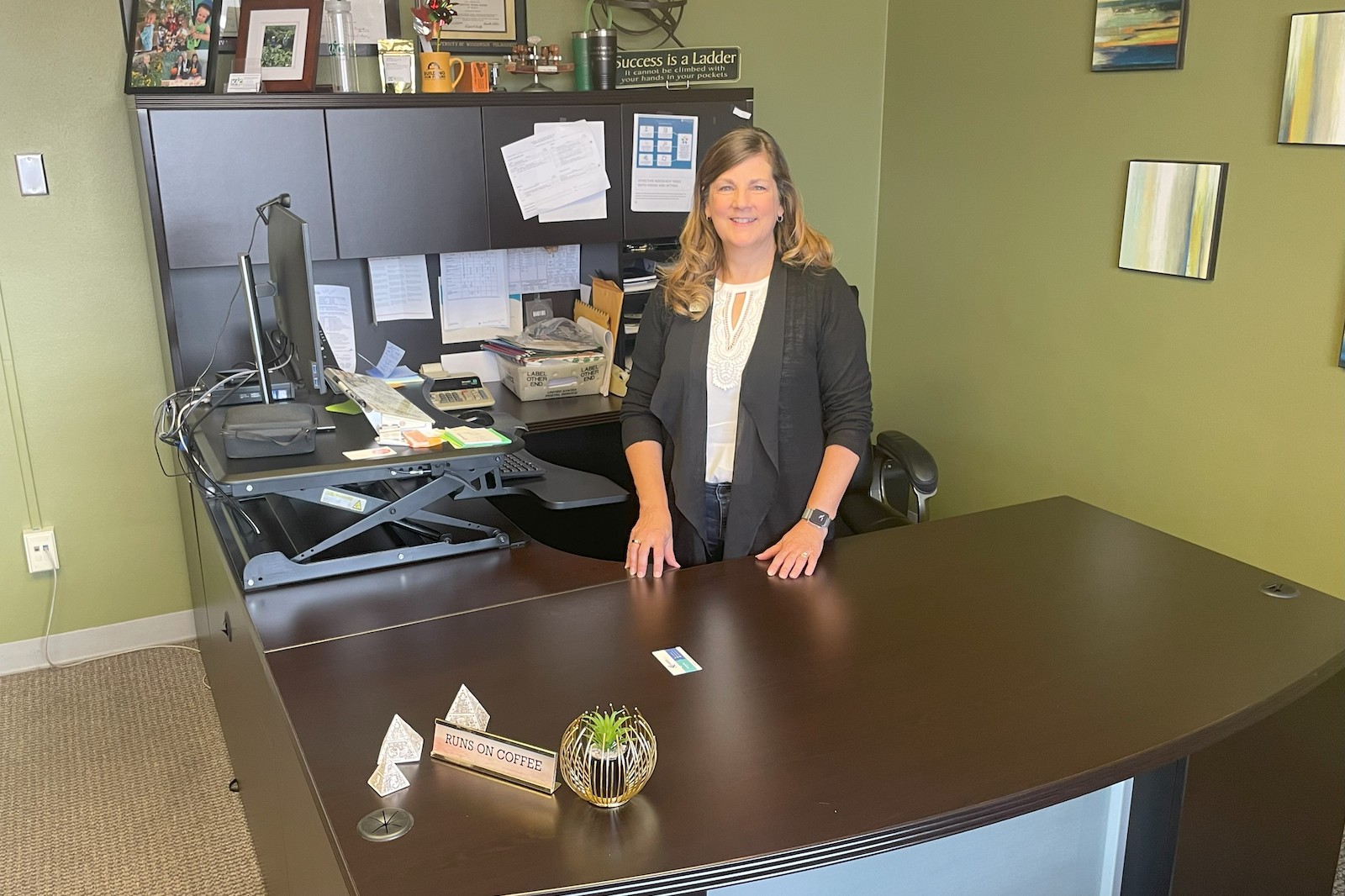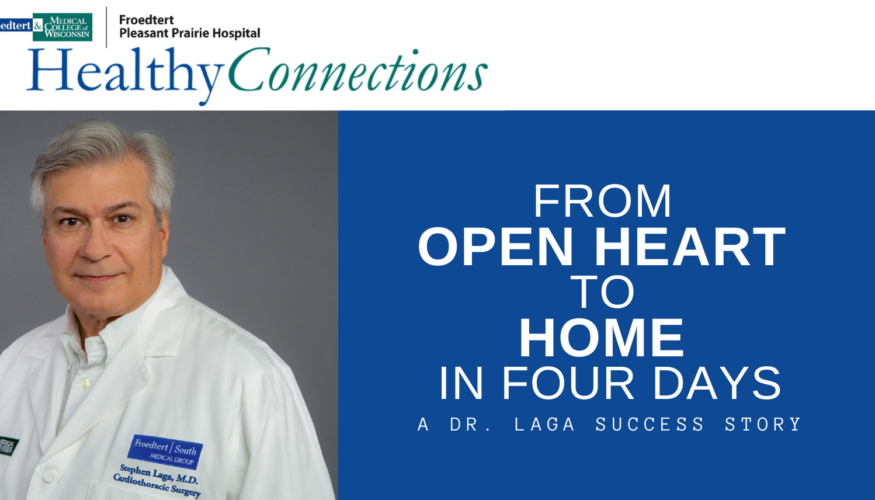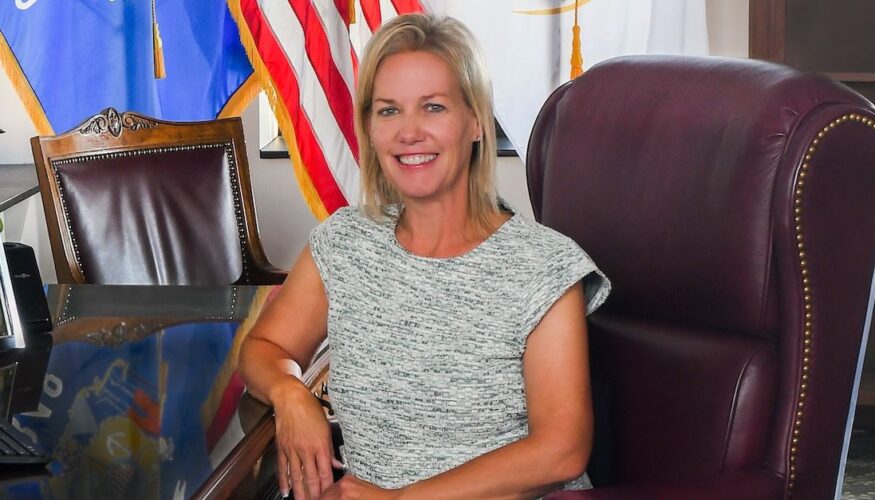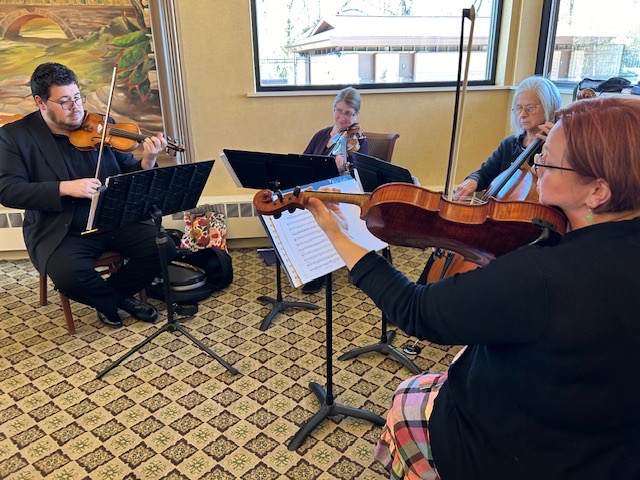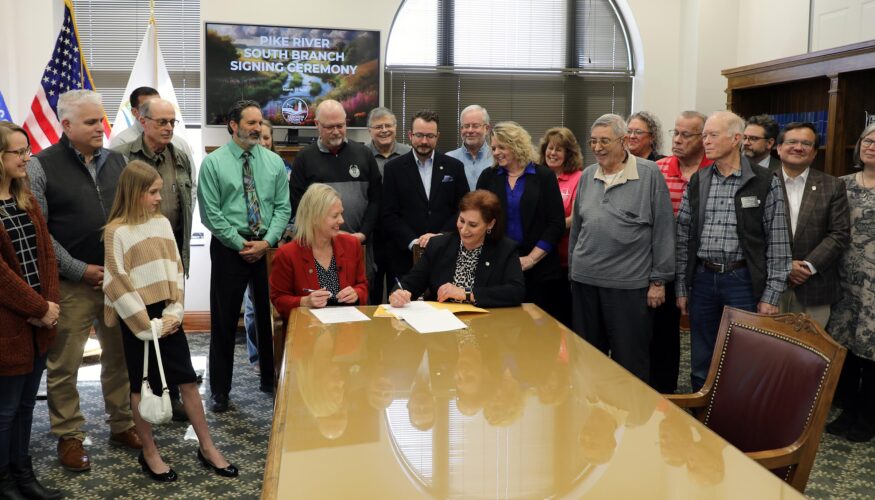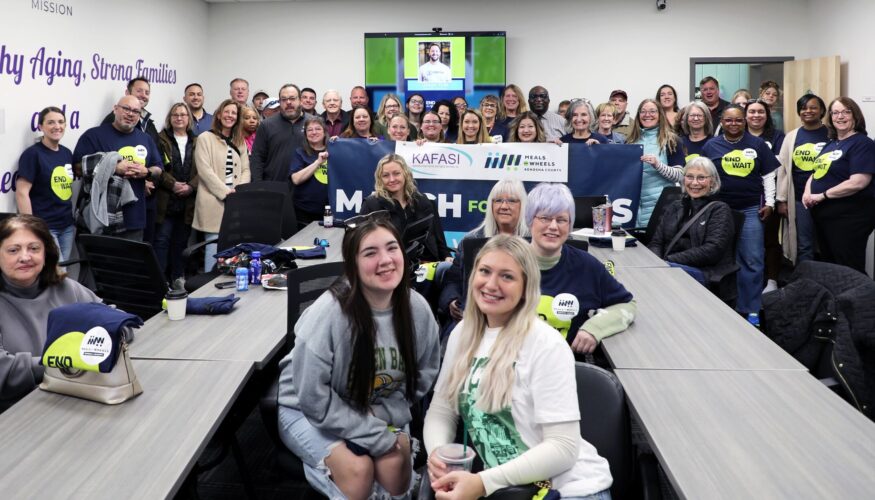When Christine Weyker first came to the Kenosha Achievement Center, she had – if not a detailed plan – at least an idea in mind of how long she’d be working with the organization.
Weyker was first brought to the KAC as the director of the Birth-to-Three Program, a program she had been in charge of for a different organization in Kenosha County. When she was brought in to implement and run that program at the KAC, Weyker figured it would be a quick turnaround.
“I wanted to get everybody moved here, settled, and then I was going to be out the door,” she said. “One year, out the door.”
Well, as so often happens with our best-laid plans in life, Weyker found that the door to the KAC wasn’t so easy to close behind her once she had opened it.
And she wouldn’t have it any other way.
That one year has turned into a quarter-century for Weyker, as the start of 2023 marked her 25th year with the KAC. After starting as the director of the Birth-to-Three Program, Weyker eventually moved up to become the KAC’s Chief Executive Officer. This month, Weyker celebrated her 10th anniversary as the CEO.
For her long service to the community and to mark her 10th anniversary as the KAC’s CEO, Weyker has been named this week’s Kenosha.com Kenoshan of the Week.
And while change is always the one constant in life, for Weyker, one thing has always remained the same throughout her tenure with the KAC.
“Truly, things have changed a lot in 25 years,” Weyker said from her office at the KAC on Friday morning. “One thing that hasn’t changed is, every day you walk in the door, you do smile.
“Every day.”
The right fit
Weyker’s job as the CEO of a nonprofit organization encompasses many duties.
On its website, the KAC’s mission statement is “to create opportunities for the personal growth and success of persons with special needs. KAC does this by removing barriers, changing perceptions and building confidence.”
The KAC serves people with special needs, starting at birth. According to Weyker, the organization takes a three-pronged approach to this mission.
“We like to talk about it in three segments: children, adults – or soon-to-be adults – and then transportation,” Weyker said. “And then embedded in those three big categories are a lot of different things.”
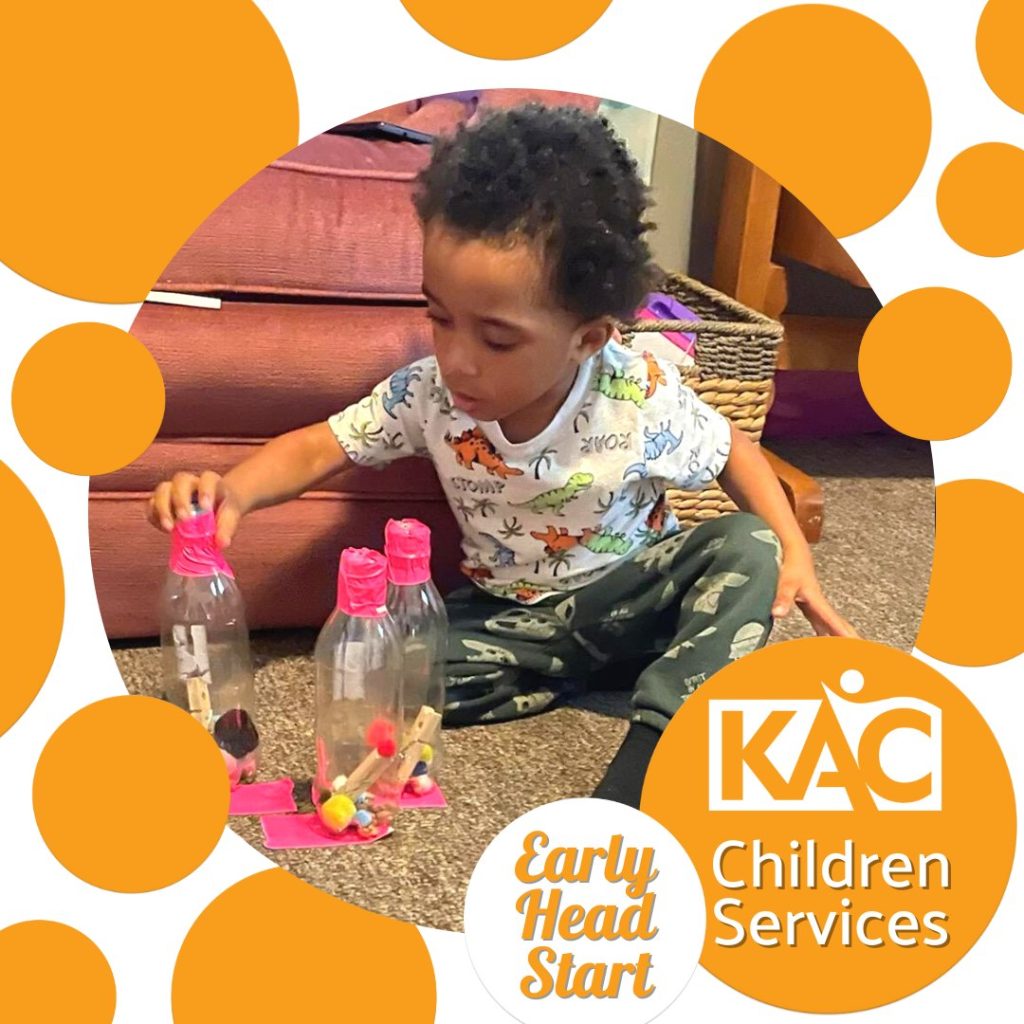
PHOTO: SUBMITTED PHOTO
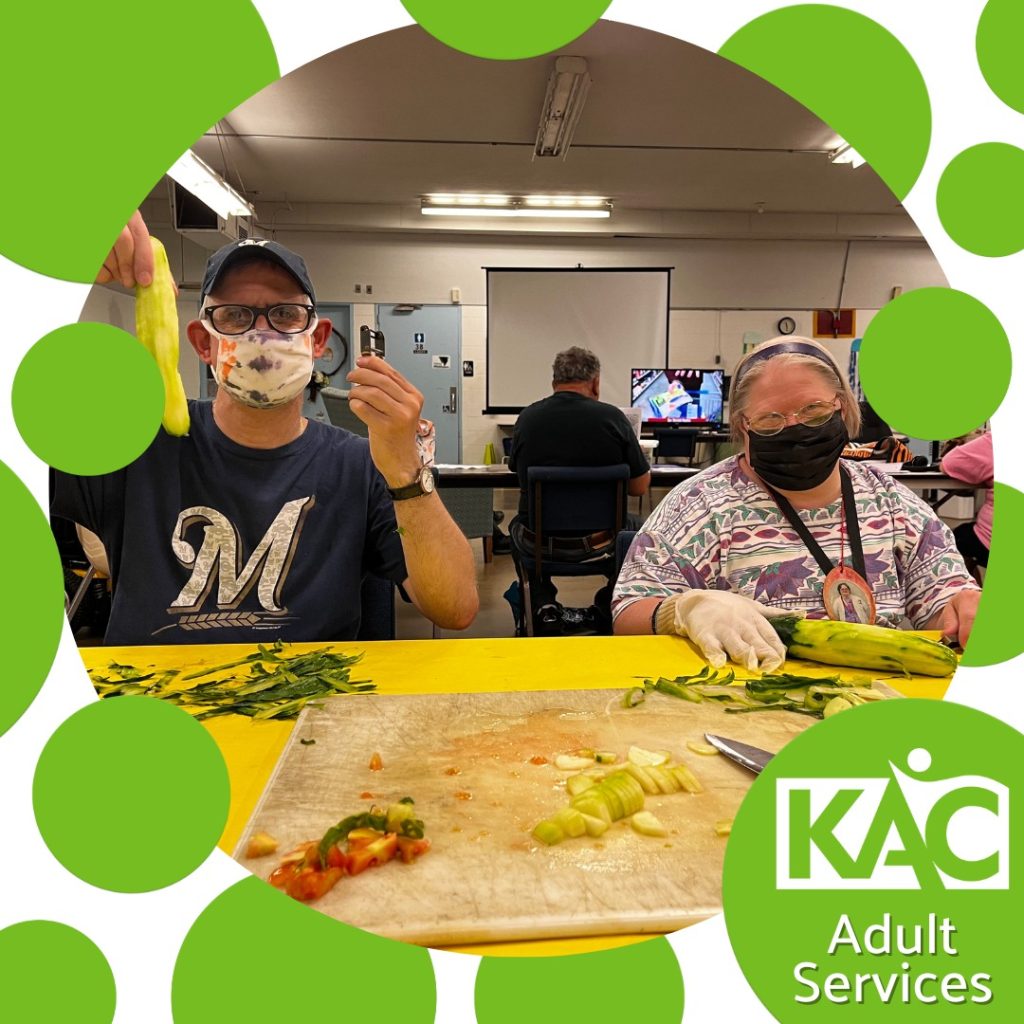
PHOTO: SUBMITTED PHOTO
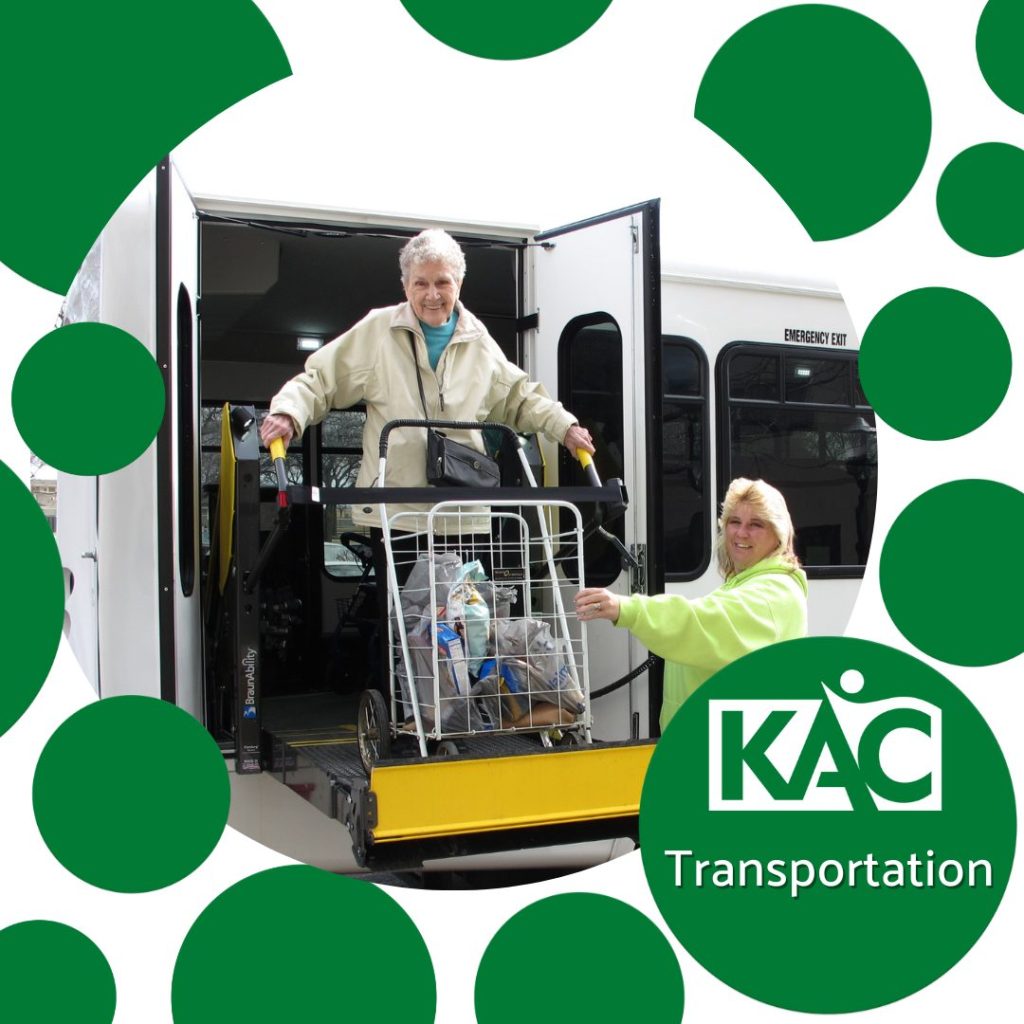
PHOTO: SUBMITTED PHOTO
That means Weyker could be doing anything at any time, from overseeing the KAC’s partnership with Meals on Wheels, to working in the kitchen, on transportation services, packaging, or really anything the KAC is involved with.
“Every day is different,” Weyker said. “The main undertow as the CEO is really to try and keep things on course and moving forward. Sometimes that means programmatic intervention, and a lot of times it means watching the finances and figuring out how to keep the doors open.
I’d say the thing that I really like about the KAC in my day-to-day (job) is the eclectic nature of the work.
Chris Weyker
It was right out of college, in fact, that Weyker realized that kind of job was the perfect fit for her.
After graduating from New Berlin Eisenhower High School, Weyker completed her undergraduate degree in education from UW-Milwaukee and then acquired her Master’s Degree in Early Childhood Leadership and Advocacy from National Louis University.
But while she possessed all the right degrees for a career in education, specifically early childhood, Weyker found she just didn’t work the best in a traditional school system.
“I thought I was going to go into the school system, but I learned that I am not somebody who can follow somebody else’s schedule,” she said with a laugh. “And that wasn’t going to be for me. No matter how attractive some of the other benefits were, that just wasn’t going to be me in my day-to-day life.”
In the meantime, Weyker had gotten married right out of college – she and her husband, Ken, are celebrating their 35th wedding anniversary this year – and had two daughters. So she went to work in daycare as a daycare center director.
“That was kind of my path,” Weyker said.
Meanwhile, Weyker’s husband got a job in Kenosha County in law enforcement with the State Patrol and was then hired by the Kenosha County Sheriff’s Department. So the Weykers moved to Pleasant Prairie, and Christine began her employment running the Birth-to-Three Program with a different organization than the KAC.
That, however, was not going to last long.
“I was in a new community, and I wasn’t aware that there had been some unrest with the organization and that the public had been promised that the contracts of that agency were being put out to bid,” Weyker said. “So the writing was on the wall, and the board said, ‘We know what’s happening. Go ahead and look for a new home.’”
That’s when Weyker brought her plans for the Birth-to-Three Program to the KAC and presented the work she had already done with it to the KAC’s then-CEO, Paula Williams.
“I researched some organizations in Kenosha who might be a match for the Birth-to-Three Program and knocked on the door here,” Weyker said. “And my predecessor here, Paula Williams, opened the door wide and said, ‘Absolutely, we would love to get back into the business of working with children.’”
Many services
Today, the KAC – which will celebrate its 60th anniversary in 2024 – is involved in many services that help the community, especially to assist those with special needs to be placed in competitive employment opportunities.
Some, in fact, are employees of the KAC itself.
“We do like to walk the walk,” Weyker said. “We employ people with disabilities. We have to set an example and employ people with disabilities if we’re going out into the community.
“Part of our community employment program is placing adults with disabilities in competitive employment situations.”
Over the years, that service has evolved significantly for the KAC.
Back in the 1960s, Weyker said, people with special needs were generally employed in what’s called piece-rate work. For example, at one point, the car parts company Mopar was the biggest employment contract that the KAC had.
“We were repackaging car parts,” Weyker said. “Take them out of big boxes and put them in individual boxes. So we did a lot of that work. … That was kind of the 1960s model to give people meaning to their day, give them meaningful work.”
While that was certainly valuable, Weyker said attitudes and perceptions have evolved over the years with regards to what people with special needs are capable of. Most significantly, the KAC wants to help people with special needs actually seize the initiative on what they want to do in life, not just assign them to a job.
“We’re like, ‘Wait a minute, people can do what they want to do,’” Weyker said. “And so that was, we’ll call it, the birth of community employment, really helping people figure out, what do they like to do, what do they want to do? And then help get them placement in competitive employment in different jobs in the community.”
The KAC employs many people with special needs via state-use contracts, which, Weyker says, stipulate that 75 percent of the labor hours are done by people with disabilities. For example, the KAC employs people in food service at the Racine Youthful Offender Correctional Facility and in doing all the janitorial and groundskeeping work at both the rest area off Highway 165 and I-94 and at the Armory buildings in Kenosha County.
Also, those friendly “Welcome to Wisconsin” signs that greet travelers as they come over the border into Kenosha County from Illinois? The KAC maintains those, too.
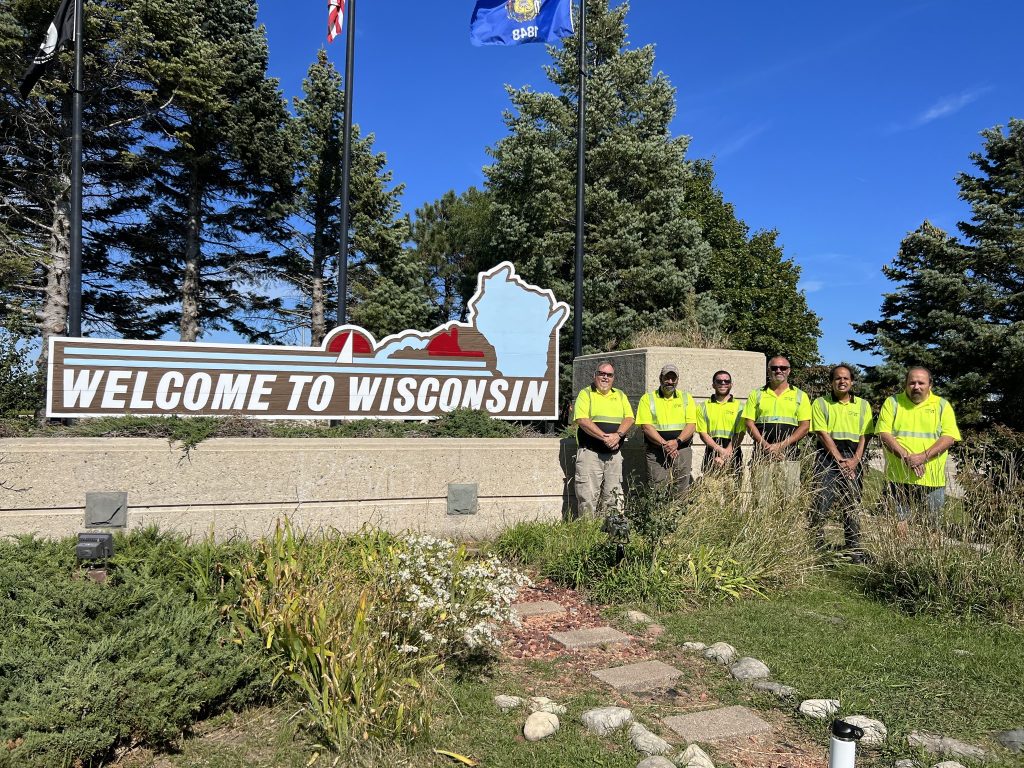
PHOTO: SUBMITTED PHOTO
“We employ over 100 people,” Weyker said. “Probably, people don’t realize how big we are. Our programs, services and business opportunities touch thousands of people in the community, because we’re kind of that birth-through-lifespan of services.”
For children, meanwhile, the KAC runs an Early Head Start Program – Weyker says a third of the children in that program have a developmental disability or delay – as well as a Birth-to-Three Program and community-based playgroups for anyone with children under the age of 5. Behind the KAC’s building at 1218 79th St., in fact, is a large, beautiful garden and play area that’s perfect for children to run around in and get some fresh air.
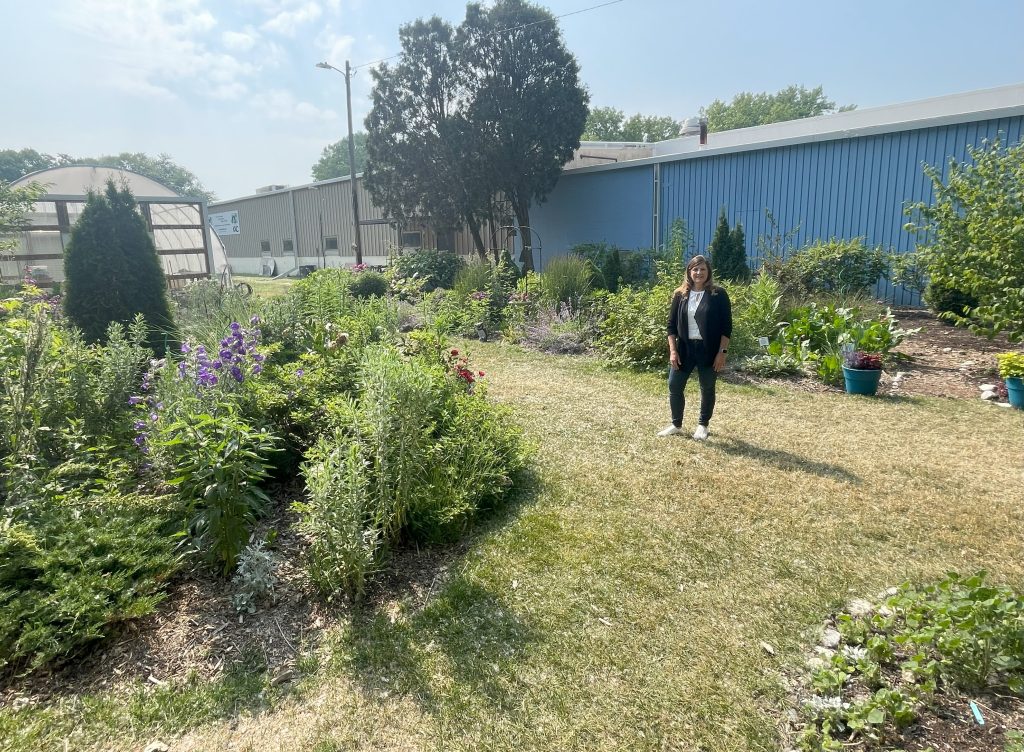
PHOTO: SUBMITTED PHOTO
Weyker stresses that the KAC’s most important function in its children’s programs is to work closely with the parents of children with developmental disabilities, which is crucial for things like early-stages physical therapy.
“The most important part of this is the parent or caregiver,” Weyker said. “So our therapy staff really are using a consultative model to embed therapeutic activities into daily routine.
“… If we need to do something for leg tone, we’re going to say, ‘Every time you’re changing a diaper, here’s something that you can do real quick.’ And then they can get therapy ongoing throughout their day.”
The other main facet of the KAC’s services is transportation. The KAC runs the Western Kenosha County Transit, does all of the City of Kenosha’s paratransit and also runs some employment shuttles all the way down to Great Lakes Naval Base in Illinois.
The KAC’s paratransit services are geared to serve the elderly and people with disabilities.
“So they can age in place and still participate in the community,” Weyker said. “(If) you need a ride to your medical appointments, to get your hair done, to go see your friend, paratransit is an excellent option.”
In fact, the KAC’s transportation services are extensive enough to take people throughout Kenosha County and even beyond. Weyker calls this service Kenosha’s “best-kept secret.”
“You can get on the city bus here – let’s say here, at the KAC – and you can ride the city bus to Southport, and you can transfer onto a Western bus and get all the way out to Lake Geneva,” she said.
What’s next?
Interestingly enough, while the KAC exists to help people with special needs, it’s everyone else that arguably learns the most from its services.
Weyker has an enlightening perspective in this regard on the concept of inclusivity. While the KAC helps people with special needs feel included in the community, maybe it’s not the people with special needs who feel left out in the first place.
It’s everyone else who needs to learn about how much those with special needs can contribute to the community.
“I actually think (those with special needs) don’t necessarily think that (they’re excluded),” Weyker said. “I think we think that, right? The general public thinks that.
“So if we start on an inclusive thought process, like we would for anybody – what do you want to do, what are you good at, what do you think, what are your hopes and dreams? – then we can help pave that path.”
It’s a path that Weyker has helped pave in the community for 25 years now. So, after going at least 24 years beyond her original plan for employment with the KAC, how much longer will Weyker be working?
Her daughters are grown up now, as both graduated from Tremper High School and then UW-Milwaukee. Christine and Ken Weyker also have three grandchildren now, all boys, ages 4, 5 and 6. And Ken retired from the Sheriff’s Department about five years ago as Captain of Operations.
Ken’s retirement actually prompted a move for Christine and Ken from Pleasant Prairie to Racine County.
“His ultimate dream was that he wanted to live on a golf course,” Christine said. “So then for us to figure out how I can continue here working (at the KAC), and he gets his dream, we ended up in Racine.
“So we live on the 15th green at Meadowbrook (Country Club). Condo life.”
As for how long she’ll continue as the CEO at the KAC, Weyker says she doesn’t have a specific exit plan. But she did say she’d like to spearhead the KAC to move its main location to a more central place in Kenosha County. It’s located now right off Sheridan Road, just south of Simmons Field, on the far eastern side of the county.
With so many services, especially transportation, located throughout the county, Weyker said it would be nice for the KAC to be more centrally located. Then, perhaps, she can close the book on a tenure at the KAC that was supposed to last a year but has turned into many more, thankfully for the community.
“I’d like to get us more centrally located, get us settled, and continue this path of success that we’re on,” Weyker said. “And then it would be time for the next person to take over.”

